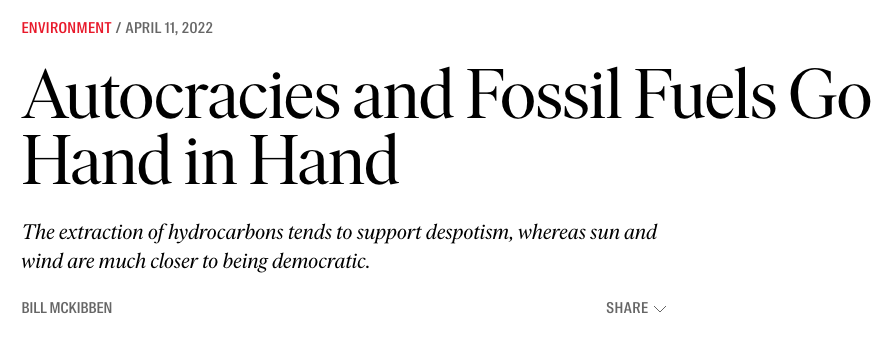Natural gas isn’t natural, it’s methane
When you’re at a tailgate this fall, sharing some “all-natural” hot dogs with friends and washing it down with some “all-natural” fruit punch, putting on some “all-natural” sunscreen before heading into the football game, consider why companies love to label their products as “natural”.
The word is classic marketing: most people think that, if something’s natural, it must be good! And nowhere is that clearer than the case of “natural gas.” The “natural” in natural gas means absolutely nothing, but it’s no secret that fossil fuel providers want to convey images of cleanliness, freshness, and minimal environmental impact as a marketing ploy they’ve funded for literally decades.
If we wanted a more accurate name for this gas, what should we call it? We could just call it methane, as that is the primary chemical component. But there are many other options, all of which are more accurate than the industry's long-held marketing term of “natural gas.”
Pollution Gas
‘Pollution Gas’ underscores the fact that if you use natural gas in your house, you’re basically poisoning your family with some of the same cancer-causing chemicals found in second-hand smoke. The gas pipelines leak out of every connector and valve dumping these gases into your house. When you burn the methane gas, it releases more toxic gases, like tiny particles, benzene and NO2, which further fouls your family's air. There are a number of epidemiological studies that point to an association between asthma and these combustion-related toxins.
Heat Wave Gas
Another possible name would be ‘Heat Wave Gas’. This highlights the role of methane in global warming, as it constantly leaks from storage containers and pipelines even when it's not burned. That's a huge problem because methane is a very potent greenhouse gas, with a kilogram of methane trapping about 30 times as much heat as a kilogram of carbon dioxide. In fact, methane is responsible for about 30% of the warming we’ve experienced. So when you use methane to cook, you aren't just cooking your meal — you’re also cooking the planet. It’s the world's worst version of “buy one, get one.”
War Gas
Perhaps we should rebrand methane as ‘War Gas’. This name underscores the geopolitical turmoil caused by our dependency on fossil fuels. Remember that the U.S. invaded the Middle East to ensure the fossil fuel supply. Twice. And of course Russia’s recent intrusion into Ukraine was encouraged by Putin’s assessment that Europe, heavily reliant on Russian gas, wouldn’t retaliate. (Instead, Europe’s investing in renewables.)
Anti-Democracy Gas
More generally, methane could also be rebranded ‘Anti-Democracy Gas.’ Putin has been weaponizing natural gas for years to undercut democracies while Saudi Arabia uses oil production to attack our elections. As Bill McKibben put it, “The extraction of hydrocarbons tends to support despotism.”
We can see this closer to home, where U.S. Oil companies have bought so many of our elected representatives that many legislatures now work on behalf of fossil fuel companies rather than on behalf of citizens. In Texas, for example, the legislature enacted legislation that stopped cities from regulating fracking. Texas has also banned financial firms from doing business with the state after the State Comptroller said that they did not sufficiently support the oil and gas industry.
Burning Farts
We know that agriculture is a big source of methane, including from the digestive system of cows. Thus, we could also call natural gas ‘Burning Farts,’ although technically the gas comes from both ends. The ads write themselves: Imagine a 50’s housewife talking into the camera and saying, I love my family too much to ever cook them dinner over anything other than an affordable, reliable, clean-burning fart.
We need to be accurate
Funny as this may seem, we need to get serious about the way we talk about ‘natural’ gas. Names matter, and they influence public perception around fossil fuels. Polling has shown that 77% of Americans have a favorable view of natural gas, while less than 30% approve of methane gas — even though they’re essentially the same product.
The fossil fuel industry is well aware of this, and has spent decades flooding the airwaves with advertising aimed at connecting their deadly product with words like “clean” and “natural.” It's high time that we stripped away the glossy veneer of marketing language and faced the truth about the energy sources we use. It is the first step in fostering more honest conversations about our energy choices and their impacts on our health, our planet, and our geopolitical stability.
‘Methane’ is a simple and science-based option, although I’d love to see how much the industry would have to spend to sugar-coat ‘burning farts.’
Related links:





"fossil gas" is already fairly widely used (see the Wikipedia entry for "natural gas" which lists it as a synonym), and while it's not as pejorative as the other ones you suggested, for that very reason it's much more likely to become widely used instead of "natural gas" -- so "fossil gas" is what we should all promote.
Andrew and Zeke,
This was brought to my attention by a substack note from Katharine Hayhoe.
News Release :
"A new report from the National Academies of Sciences, Engineering, and Medicine provides a broad set of recommendations that form a comprehensive plan to put the U.S. on a pathway to realize its net-zero carbon emissions goals by 2050 and ensure that all Americans can benefit from a fair and equitable energy transition."
https://www.nationalacademies.org/news/2023/10/new-report-provides-comprehensive-plan-to-meet-u-s-net-zero-goals-and-ensure-fair-and-equitable-energy-transition
IMO, every climate scientist and scientific organization in the U.S. should get the word out and support this.